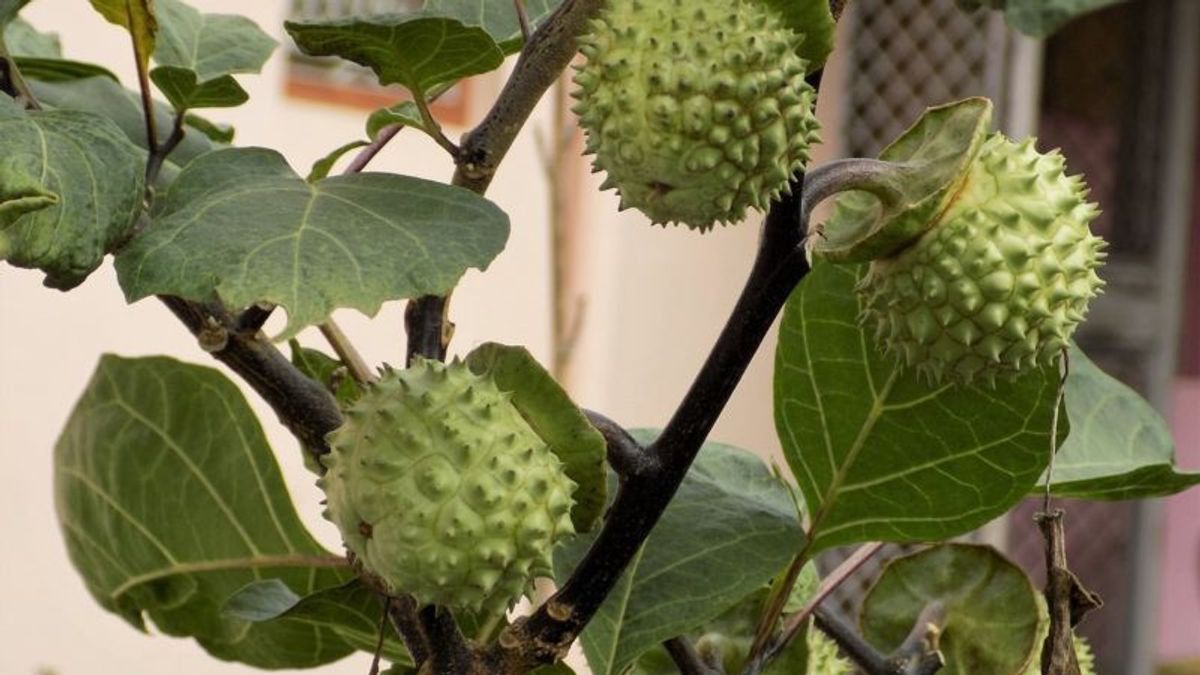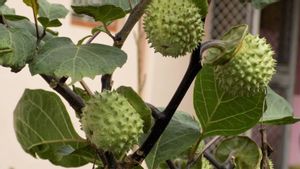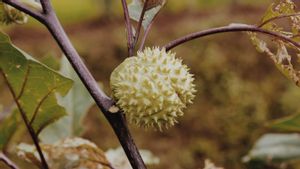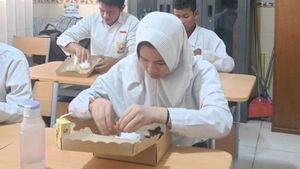JAKARTA - There are a number of characteristics of people who experience poisoning or poisoning of warehousing fruit, such as hallucinations.
This was stated by the Consultant Consultant for Addiction at the Sambang Lihum Mental Hospital, Banjarmasin, South Kalimantan, dr. Firdaus Yamani Sp.KJ(K) quoting Antara.
Kecubung's symptoms usually occur 30-60 minutes after being swallowed and can continue up to 24-48 hours later, he said.
Firdaus said the first characteristic of kecubung poisoning can be seen from the way he talks that tend to be weathered. The sufferer also has hallucinatory vision.
The next sign is skin, mucosa in the upper digestive tract and respiratory tract for tube poisoning to dry up.
This person will also experience Pupil (midriasis) widening, constipation, photophobia and hyper or hypotension. In other signs, the body will become hot and experience bradikadia or takikardia.
The heart rhythm is irregular and feels restless. It can be accompanied by disorientation or confusion, seizures, urine retention and depression in the respiratory system," said Firdaus.
Kecubung is a perdu plant that grows a lot in countries with tropical and sub-tropic climates, including Indonesia. The plant has a subtle inogenic effect that contains tropical alkaloid centawa, such as atropines, skokoolamins, and hyposiamins.
The protective effect can last up to one week, said Firdaus, and consumption of a tube in the long term can cause more severe brain damage and decreased cognitive function.
SEE ALSO:
"Many times, it can cause more severe damage to the brain so that they experience mental disorders whose hallucinations are prolonged, chaotic behavior and cognitive function decreases," said Firdaus.
The effects of hallucinations and potential abuse make kecubung no longer used as a traditional medicine.
Diperterangan terpisah pada Senin (15/7) Keluatan Dokter Pengembang Obat Traditional Jamu Indonesia (PDPOTJI) menyatakan kecubung digolongasikan sebagai tanaman toxi. Selama, kecubung digunakan untuk meningkat stamina atau merekan penyakit.
The English, Chinese, Japanese, Arabic, and French versions are automatically generated by the AI. So there may still be inaccuracies in translating, please always see Indonesian as our main language. (system supported by DigitalSiber.id)
















